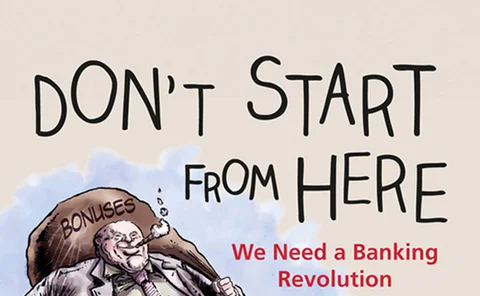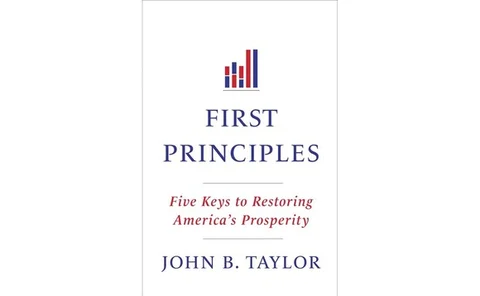Economics
Questions of credibility in the Eurozone and China
The ECB's credibility was once more called into question over the handling of Greek debt negotiations; positive signs from China amid equity market chaos
Creating an effective equity market in China
Wang Jianxi, chairman of Shenyin and Wanguo Securities, sees the delicate balancing act of supervising the financial markets as key to developing a multi-layered capital market
Are central banks the ‘Figaro’ of the financial markets?
Central banks continue to play a vital position in the functioning of markets. While this raises significant concerns about moral hazard it is not an unfamiliar role from an historical perspective
Book notes: Don’t start from here, by David Shirreff
A pointed, passionate plea for a simpler banking system that deserves to be taken seriously
Book notes: What Have We learned? Macroeconomic Policy After the Crisis, by George Akerlof, Olivier Blanchard, David Romer and Joseph Stiglitz
This book brings together the great and the good of the economics profession, policy-makers and academics, to assess what the dust jacket describes as the “brave new economic world"
Book notes: Finding Equilibrium, by Till Düppe & Roy Weintraub
This unusual book describes the early progress in the mathematisation of economics and, in particular, micro-economic model building
Book notes: Fortune Tellers: The Story of America’s First Economic Forecasters, by Walter Friedman
A fascinating book that crosses the traditional boundaries between the history of economic thought and cultural history
Book notes: Mass flourishing, by Edmund Phelps
This is a recommended read, not only because it was written by Edmund Phelps, the 2006 Nobel Laureate in economics, but for encouraging reflection on fundamental issues related to modern life
Independence no substitute for rules-based policy
Thomas Cargill summarises the conclusions of four papers by world-leading economists on the issue of central bank governance and finds independence is overrated
IMF paper finds highly indebted nations can still grow fast
Results of a new study contradict findings of Reinhart and Rogoff, who argued that growth declines at debt of more than 90% of GDP
ECB paper questions quantity theory of money in low-inflation countries
Researchers say evidence for the theory is 'just not there' in countries with low or moderate inflation, but becomes a ‘better fit' when correcting for variation in output growth
Economics Nobel goes to CBP board member Robert Shiller
Central Banking Publications advisory board member honored for work predicting long-term price trends; Eugene Fama and Lars Peter Hansen share the prize
German paper proposes new method for identifying time-invariant regressors
Discussion paper says existing techniques used to identify time-invariant regressors in dynamic panel data models are ‘quite biased’ and proposes a two-stage alternative
Maldives annual report finds inflation back in check after 2011 devaluation
Monetary Authority of the Maldives annual economic review describes tough year for the tourism-dependent country, but the dollar-pegged currency is appreciating to the upper end of its band
Booknotes: The Leaderless Economy: Why the World Economic System Fell Apart and How to Fix It
The title of Peter Temin and David Vines’ book, especially its subtitle, promises the reader a lot
Stockton’s Bank of England review offers forecasting lessons for central banks
The Stockton review of the Monetary Policy Committee at the Bank of England offers valuable lessons for central bankers and economists around the world.
Central banks need to be wary of ‘new’ monetary policy trends
Policy-makers are reappraising the role of independent central banks pursuing inflation targets. Bernd Braasch1 encourages them to use sound evidence to inform their judgements
New paper finds Colombia could be in the midst of a housing bubble
'New-fangled method' of detecting bubbles finds Colombian housing could be in a bubble right now, though findings may not be robust
Book notes: First Principles: Five Keys to Restoring America's Prosperity
The author's premise is that the best way to understand the problems confronting the American economy is to go back to the first principles of economic freedom upon which the country was founded



















